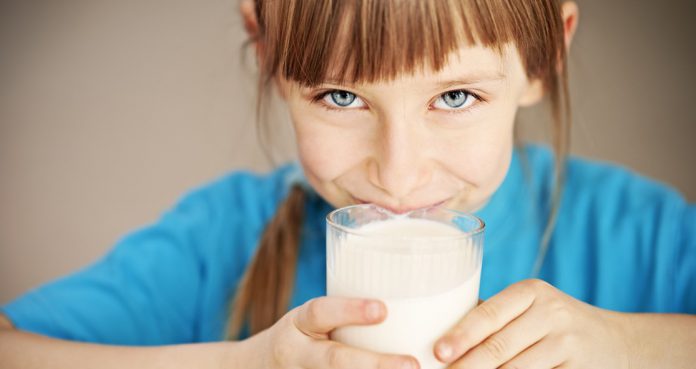Young children should be given mostly water and milk instead of chocolate milk, sodas or other sweetened beverages, according to new nutritional guidelines produced by Healthy Eating Research and sponsored by the Robert Wood Johnson Foundation.
On Wednesday, a panel of researchers issued new guidelines for children, mentioning details about what they should and should not be allowed to drink in their early years.
The researchers said that babies should get only breast milk or formula. While water can be added to babies’ diet at 6 months, they can switch to cow’s milk over formula at 12 months.
According to the guidelines, children must drink mostly water and milk at least for the first five years. They should not be given sugary drinks, sodas, sweetened beverages, chocolate milk, and caffeinated drinks.Also, they should avoid almond, rice or oat mill as they are less nutritious than cow’s milk.
In addition, the researchers said young children should not drink more than a cup of 100 percent juice a day.
Researchers at the American Academy of Pediatrics, the Academy of Nutrition and Dietetics, the American Heart Association, and the American Academy of Pediatric Dentistry have developed the new guidelines.
Although the new guidelines may baffle many parents, experts hope that following the recommendations may help curb childhood obesity, which is responsible for chronic diseases later in life.
Megan Lott, the Deputy Director of Policy and Research for Healthy Eating Research, said, “Close to half of all 2- to 5-year-olds in the U.S. drink sugary drinks every day, which we know increases their risk of obesity, diabetes and other health problems. These recommendations simplify everything for parents — water, milk and limited amounts of 100 percent fruit juice.”
The panel explained that young children should not drink much juice because excessive juice intake could increase the risk of weight gain and dental decay.
Dr. Richard Besser, the president and CEO of Robert Wood Johnson Foundation said, “When we talk about empty calories that are consumed through beverages and the number of calories people get from sugar-sweetened drinks, we’re not just talking about soda. Juice is another source of calories that nutritionally aren’t terrific.”
In the United States, more than one-third of children and teenagers are overweight or obese, which could increase the risk of chronic diseases such as type 2 diabetes, high blood pressure, high cholesterol, heart disease, and even some cancers.
“The hope is that through this approach, you’ll help your child develop a taste for what’s good for them,” said Dr. Besser. “Though the occasional glass of 100 percent juice is not going to be harmful, ‘what you want your children as they grow older to be drinking primarily is water.’”




















